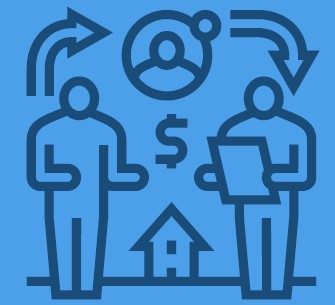Harvesting Potential: Real Estate Farming Ideas for Growing Your Business
Nurture your real estate farming ideas, from community involvement to digital marketing strategies - how to reach your growth potential.
To grow your real estate business, farming is key. It’s a strategic approach to becoming the top realtor in a specific neighborhood. Start by selecting the ideal area, informed by demographics and zoning laws. Build solid relationships within the community through involvement and transparency. Harness digital marketing tools, like social media and SEO, to widen your reach. Host local events and form partnerships to reinforce your community ties. Successful real estate farming ideas require constant monitoring and adjustments based on market trends and feedback. Get ready to discover more insights and fine-tune your strategy for business expansion.
To explore the domain of real estate farming, it’s vital to first understand what it entails and why it’s a potent strategy for real estate professionals. At its core, real estate farming is a focused approach where you cultivate a specific area, or ‘farm,’ to grow your business. It’s about building relationships, creating visibility, and becoming the go-to realtor in a particular neighborhood.
Now, let’s discuss farming ethics. You’re not just selling homes, you’re establishing a community presence. It’s important to respect the boundaries of other agents’ farms, to be transparent with clients, and to provide real value to the community you serve. Unethical farming practices can damage your reputation and the trust you’ve worked hard to build.
Client cultivation is another pivotal aspect of real estate farming. It’s not about quick sales, but nurturing long-term relationships. Stay connected with past clients, be visible and involved in the community, and consistently provide helpful, relevant information. Your goal is to become the trusted expert, the first person people think of when they’re considering buying or selling a home. This involves patience, persistence, and genuine care for the community you’re farming.
Identifying your farm area in real estate is a pivotal step you shouldn’t overlook. This involves choosing your territory strategically, staying informed on market trends, and analyzing the density of your competition.
Let’s look at these important points closer and understand how they can lead to your success in real estate farming.

How do you pinpoint the ideal territory for your real estate farming?
It’s critical to dissect territory demographics and zoning regulations. Start by identifying your target market’s characteristics – are they families, young professionals, or retirees? Understanding the demographic makeup of a territory can guide your marketing strategies.
Additionally, zoning regulations can’t be overlooked. These laws often dictate what types of properties can be built or how existing properties can be used. It’s vital to know if an area is zoned for residential, commercial, or mixed-use. Zoning laws can impact property values, demand, and potential for growth.
Choose your territory wisely, it’s a strategic move that can either make or break your real estate farming success.
Once you’ve chosen your potential territory, it’s vital to explore the market trends of that region. Trend forecasting isn’t just a buzzword; it’s a critical step in identifying growth potential. You should analyze factors like property values, rental rates, and sales volume over time. This data will help you anticipate future trends and make strategic decisions.
Another significant aspect is market segmentation. Instead of viewing your farm area as a single entity, break it down into smaller segments based on property type, price range, or demographic factors. This approach allows you to understand the unique needs and preferences of different buyer groups, helping you tailor your marketing efforts more effectively.
After gathering all the necessary information about market trends, your next step should be to gauge the level of competition within your desired farm area. This is where competition mapping comes into play.
It’s not just about identifying who your competitors are, but also understanding their strengths, weaknesses, and strategies. This will help you determine the density implications, which refer to how concentrated or spread out your competitors are in the area.
A high density may mean a saturated market, making it harder for you to stand out. On the other hand, a low density could signal an untapped market, providing opportunities for growth. By analyzing competition density, you can strategically position your business for success.
Understanding your target market through thorough research and analysis is an essential step in successful real estate farming. This process allows you to make data-driven decisions, which are important in today’s highly competitive market. You’ll need to gather and interpret relevant data about the properties in your area, including their value, features, and demand.
Knowing property valuation methods is crucial, as it’s the basis for setting competitive pricing. Familiarizing yourself with comparable sales, income approach, and cost approach will help you accurately price properties. Remember, your goal is to give clients a realistic picture of a property’s value, which, in turn, enhances your credibility and trustworthiness.
You should also keep abreast of market trends and fluctuations. This will help you advise clients when it’s the best time to buy or sell, depending on their needs. Additionally, understanding the demographic and economic factors that influence property demand in your area is important. This includes population growth, employment rates, and local amenities.
In essence, thorough research and market analysis equip you with the knowledge to navigate the real estate market confidently. It provides the foundation for building a successful real estate farming business.
In the world of real estate farming, it’s crucial to master effective communication strategies.
You’ll need to focus on establishing clear messages that resonate with your target audience.
Additionally, improving your listening skills can greatly enhance your ability to understand and respond to your clients’ needs.
Crafting your message with clarity and precision is crucial in your real estate farming strategy, as it’s your key to establishing strong connections with potential clients. This involves:
To truly excel in your real estate farming strategy, you must hone your listening skills, a vital component of effective communication. Active listening is more than just hearing; it’s about understanding, interpreting, and evaluating what you’re hearing. It’s essential to be fully present in conversations, show genuine interest and responding appropriately. This guarantees that your clients feel valued and understood.
Moreover, nonverbal communication is equally significant. Pay attention to your client’s body language, facial expressions, and tone of voice. These cues can provide invaluable insights into their thoughts and feelings. Remember, your body language can also send messages, so make sure it’s open and inviting. By improving your listening skills, you’ll foster stronger relationships with clients, leading to more successful real estate farming.
Utilizing digital marketing tools can greatly enhance your real estate farming strategies, offering a platform for targeted, efficient, and interactive communication with potential clients. By leveraging resources like social media advertising and SEO optimization, you can reach a wider audience and customize your message to resonate with their unique needs and interests.
In your digital marketing toolkit, consider these elements:
Another effective strategy for real estate farming is hosting community events, which not only boost your visibility but also allow you to build genuine relationships within the community. By organizing events such as neighborhood clean-ups, charity runs, or home improvement workshops, you’re demonstrating your importance to the community’s wellbeing and showing that you’re not just about business.
One way to maximize the impact of these events is through event sponsorships. Partnering with local businesses to sponsor your event can amplify its reach and increase your brand’s exposure. You could offer advertising opportunities in return for their support, creating a win-win situation for both parties.
Incorporating collaborative promotions into your events is also a smart move. For example, you could collaborate with a local home decor store to offer discount coupons to event attendees. This not only enhances the value of your event but also fosters relationships with other local businesses.
Hosting community events positions you as a community leader, someone who genuinely cares about the area and its residents. It’s a significant way to build trust, which is important in the real estate business. Remember, it’s about nurturing relationships, not just selling properties.

Building on the relationships developed through community events, it’s also important to cultivate strong local partnerships within your real estate farming strategy. These partnerships can offer numerous benefits, such as shared resources, increased visibility, and access to a broader client base.
To establish these partnerships, you’ll need to employ effective networking tactics. So, let’s look at five ways you can do this:
In the vast world of real estate marketing, direct mail campaigns can serve as a potent tool in your arsenal, helping you reach a specific audience with targeted messages. It’s not just about sending out mailers, but about developing a well-planned campaign design. Your campaign should articulate the unique selling points of your properties, the benefits for potential buyers, and a clear call to action.
Response tracking is another important aspect of direct mail campaigns. It’s vital to measure the effectiveness of your campaigns to understand what works and what doesn’t. A unique URL or phone number can be an effective tool for tracking responses.
To help you better understand, here’s a quick guide in table form:
| Campaign Design Elements | Response Tracking Tools |
|---|---|
| Unique Selling Points | Unique URL |
| Benefits for Buyers | Dedicated Phone Number |
| Clear Call to Action | Response Rate Metrics |
As you navigate your real estate journey, it’s crucial to continually monitor and adjust your strategy to stay ahead of the curve. This process of strategy refinement may seem intricate, but it’s actually all about focusing on your performance metrics and making necessary tweaks.
Consider the following:
Don’t neglect your farming strategy or overlook your target audience. It’s essential not to spread yourself too thin or ignore local market trends. Don’t forget to continuously refine your approach based on results.
You’ll need strong time management strategies to balance real estate farming with other endeavors. Prioritize tasks and leverage innovative marketing approaches to maximize efficiency. Remember, it’s about working smarter, not necessarily harder.
Starting real estate farming typically requires careful capital allocation and strategic financial planning. You’ll need funds for marketing, networking events, and possibly hiring staff. It’s a significant investment, but can yield substantial returns.

Yes, you must be aware of zoning laws and the Fair Housing Act. Zoning laws regulate land use while the Fair Housing Act prohibits discrimination in housing. Always consult legal advice to guarantee compliance.
To deal with competition in real estate farming, it’s crucial to implement competitor analysis strategies. Understand their tactics, then use differentiation techniques to make your services stand out. Stay informed, evolve, and keep pushing forward.
To sum up, to cultivate a successful real estate farming ideas, you must till the soil of your farm area. Understanding your market, adopting effective communication strategies, and harnessing digital tools are essential steps.
Hosting local events, building partnerships, and implementing direct mail campaigns also yield fruitful results. Remember, it’s critical to monitor and adapt your strategies continuously.
So, get out there, sow the seeds of your business growth, and watch the harvest of success roll in.

Just as a chef expertly balances the spices in a dish, you must carefully manage your financial records to avoid the bitter taste of a tax audit.Tax audits can be stressful and time-consuming, but you can greatly reduce the risks with the right understanding and strategies.Now, wouldn’t you be interested in knowing these expert-recommended practices that can keep you out of the audit spotlight?Stay tuned and learn how to guard your peace of mind during tax season. Understanding the Basics of Tax Audits Diving straight into the heart of the matter, you need to understand that a tax audit is...
March 19, 2024

Bing Ads have a $100 coupon right now. Claim yours for free and start getting clients to call you. This takes under 12 min to setup!
November 18, 2014

Get leads now! Check out the top real estate lead generation strategies that are getting agents just like you real results today!
January 26, 2018
Let’s boost your lead gen.

Connect your local MLS to Facebook to promote all properties in your MLS or create any specific niche catalog of listing you want to sell using dynamic Facebook ads. Here are just some of the ways you can use these new types of ads to stand apart from the competition: